Gut Health and Autism

Understanding the Emerging Link Between Gut Health and Autism
Recent scientific advancements reveal a complex interplay between gut health and autism spectrum disorder (ASD), highlighting the pivotal role of the microbiota–gut–brain axis. This connection underscores how gut microbiome composition, gastrointestinal health, and immune responses may influence neurodevelopmental trajectories and behavioral outcomes in individuals with ASD. This article explores the scientific evidence supporting this link, the biological mechanisms involved, and potential therapeutic approaches aimed at improving gut health to manage autism symptoms.
The Origins of Autism: Genetic and Environmental Interactions
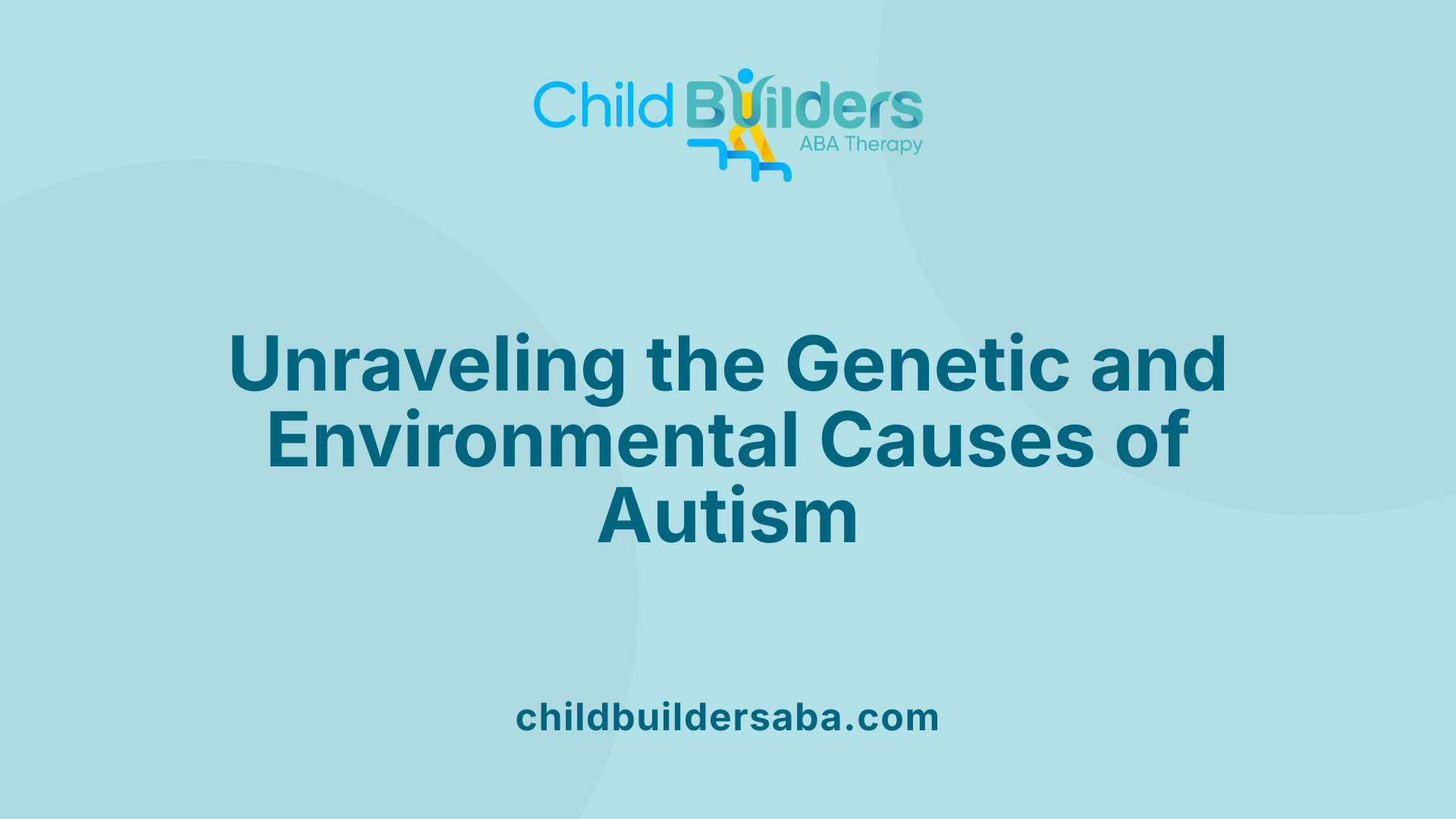
What are the primary causes of autism spectrum disorder (ASD)?
Autism spectrum disorder (ASD) arises from a mixture of genetic and environmental factors that influence how the brain develops early in life. Research shows that certain genetic influences play a significant role, including inherited gene variations, rare genetic mutations, and specific conditions such as fragile X syndrome and Rett syndrome. Family history and genetic mutations contribute notably to the risk of developing ASD.
On the environmental side, several factors have been linked to increased risks. These include advanced parental age at conception, exposure to pollutants or pesticides during pregnancy, and maternal health conditions like obesity and diabetes. Complications during birth, such as low birth weight or oxygen deprivation, as well as early life exposures to certain chemicals or infections, also heighten the risk.
Most importantly, scientific consensus confirms that vaccines do not cause autism. Extensive studies and reviews by health authorities worldwide have thoroughly debunked any connection between vaccinations and ASD, reassuring caregivers and health professionals alike.
Overall, no single cause explains autism. Instead, it is the complex interplay of multiple genes and environmental influences that shape its development. Continuous research aims to better understand these interactions and improve early detection and intervention strategies.
| Genetic Factors | Environmental Factors | Clarifications |
|---|---|---|
| Gene variations, inherited mutations | Parental age, pollutants, pesticides | No vaccine link |
| Rare mutations | Maternal health issues | Supported by scientific evidence |
| Conditions like fragile X, Rett syndrome | Birth complications, early chemical exposures |
Gut Microbiota and the Foundations of Neurodevelopment
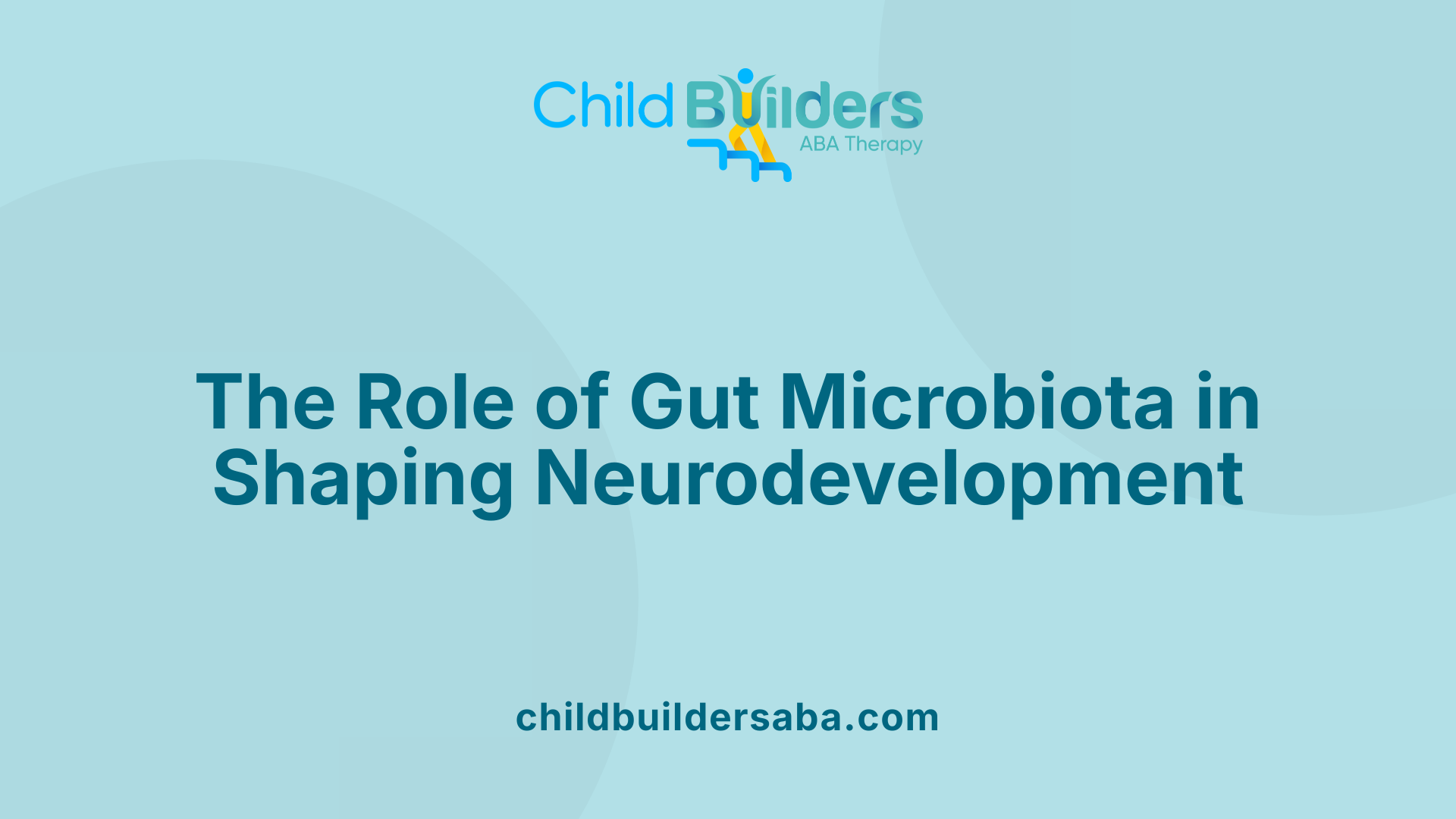
What is the current scientific understanding of the connection between gut health and autism spectrum disorder (ASD)?
Recent research highlights a significant link between gut health and autism spectrum disorder (ASD), centered around the microbiota–gut–brain axis. This complex communication network involves neural, immune, and hormonal pathways that connect the gut microbiome with brain function.
Many children with ASD suffer from gastrointestinal (GI) issues such as constipation, diarrhea, and abdominal pain. These GI symptoms are thought to be related to alterations in the gut microbiota, a diverse community of trillions of microorganisms living in the digestive tract. Studies consistently find differences between the gut bacteria of autistic children and neurotypical peers. For example, increased presence of bacteria like Clostridium species and decreased beneficial bacteria such as Bifidobacterium are common in ASD cases.
Factors influencing gut microbiota development include early life microbial colonization, mode of delivery at birth, and antibiotic use. Vaginal birth tends to promote a healthier microbiome, while cesarean delivery and early antibiotic treatments have been associated with dysbiosis—an imbalance in gut bacteria. These disruptions can impact immune system development and metabolic processes.
The microbiota influences neurodevelopment through the production of various metabolites, including short-chain fatty acids (SCFAs) like butyrate and propionate, and neurotransmitters such as serotonin. Since the gut produces about 90% of the body’s serotonin, changes in gut bacteria can affect emotional regulation, social behavior, and cognition.
Interventions targeting the microbiome, such as probiotics, fecal microbiota transplantation (FMT), and dietary changes, are under investigation to manage ASD symptoms. Some studies report improvements in GI discomfort and behavioral issues following microbiome therapy, although research is still evolving.
Overall, the current scientific consensus supports a complex but compelling connection between gut health and ASD, emphasizing the microbiota’s role in neurodevelopment and opening pathways for novel treatments.
Infections, Maternal Immunology, and Fetal Brain Development
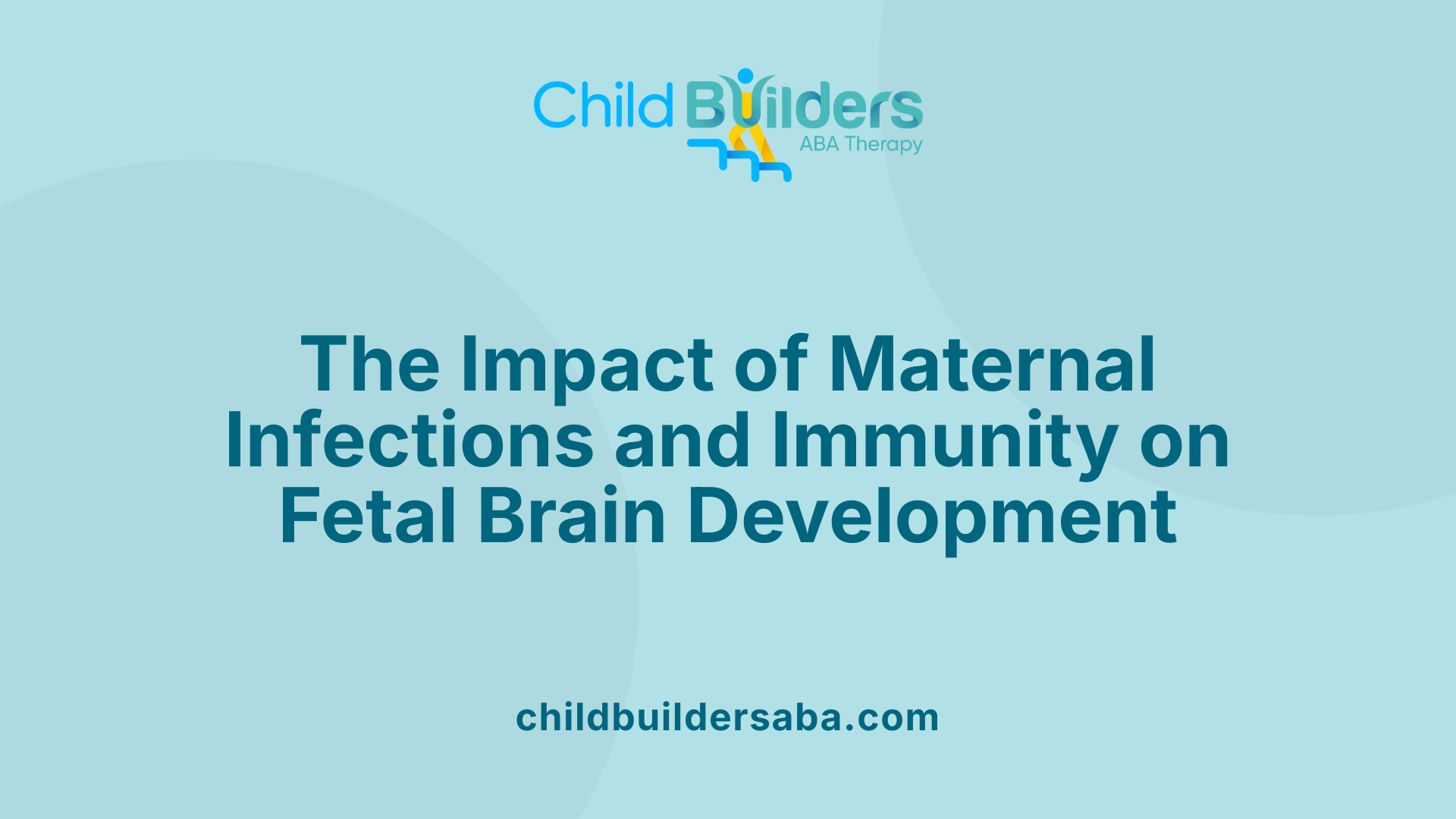
How does maternal immune activation (MIA) influence fetal brain development?
Research indicates that when a pregnant individual experiences infections, it can trigger an immune response that affects the developing fetus. This process is known as maternal immune activation (MIA). During MIA, the mother’s immune system produces elevated levels of cytokines, particularly interleukin-17a (IL-17a), which can cross the placental barrier and interact with fetal tissues.
Elevated IL-17a has been shown in mouse models to act on neural receptors in the fetal brain, potentially disrupting normal neural development. Studies demonstrate that increased IL-17a during pregnancy can lead to behavioral features in offspring similar to autism spectrum disorder (ASD). Blocking IL-17a during pregnancy has been found to prevent the onset of such immune and neurological effects in these models, highlighting its central role in this process.
What role do cytokines like IL-17a play?
Cytokines are signaling molecules that mediate immune responses. IL-17a, produced during maternal infections, particularly influences the fetal environment. Elevated IL-17a levels can activate neural pathways in the fetal brain, leading to alterations in neural circuitry. This disruption can manifest as behavioral symptoms associated with autism in animal models.
These findings suggest that immune molecules like IL-17a do not just participate in maternal defense but also have profound impacts on fetal brain development when levels become abnormal during pregnancy.
Impact of maternal infection on fetal development
Maternal infections, such as viral or bacterial illnesses, can lead to a cascade of immune responses, including increased cytokine production. These maternal immune responses may inadvertently program the fetal immune system and brain in a way that predisposes the individual to neurodevelopmental issues like ASD.
Further, maternal immune activation can alter the offspring’s microbiome, which influences immune regulation and brain development. Studies show that transplantation of microbiota from immune-activated mice into germ-free offspring can induce similar immune dysfunctions and inflammation, suggesting a microbiome-mediated pathway.
In summary, maternal immune activation, driven by infection and characterized by increased cytokines like IL-17a, plays a significant role in shaping fetal neurodevelopment. Ongoing research continues to unravel how these immune factors and microbiome changes contribute to long-term outcomes such as ASD and immune system programming.
The Role of Gut Microbiota in Autism Symptomatology
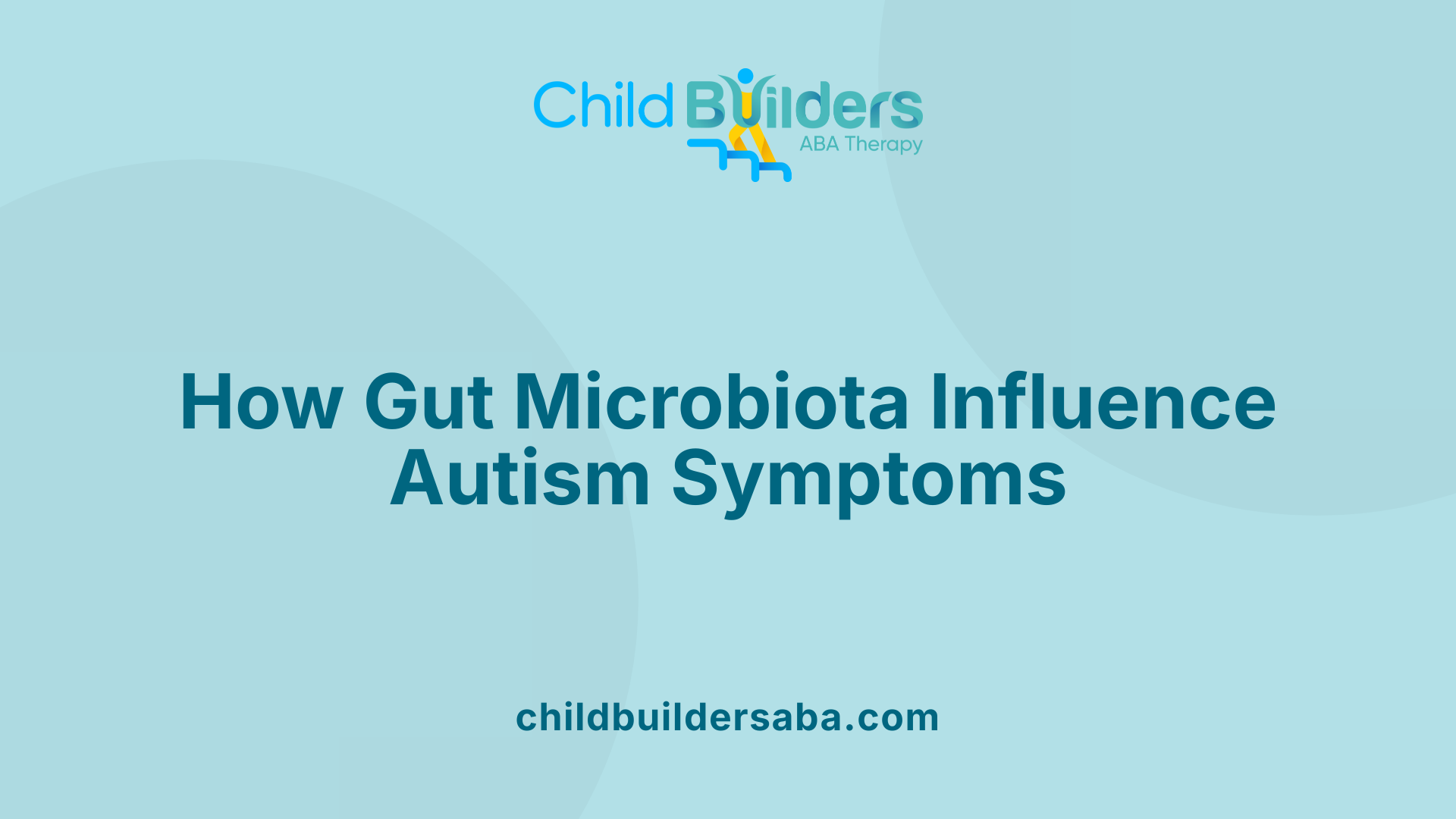
What recent findings exist regarding the role of gut microbiota in autism?
Recent scientific studies have shed light on how the composition of gut bacteria differs between children with autism spectrum disorder (ASD) and neurotypical children. These differences include an increased presence of Lactobacillus species and a lower diversity in overall microbial populations.
Advanced methods like machine learning have identified specific bacterial groups that can serve as biomarkers for autism. For example, children with ASD tend to have decreased levels of beneficial bacteria such as Bifidobacterium, alongside higher levels of bacteria like Prevotellaceae and Parabacteroides. These microbial markers can distinguish ASD children from their neurotypical peers with high accuracy.
The imbalance or dysbiosis of gut bacteria in children with autism is thought to influence symptoms through several mechanisms. Disrupted gut microbiota can lead to immune system dysregulation and increased intestinal permeability, often called 'leaky gut.' This condition allows toxins and partially digested food particles to enter the bloodstream, which may affect brain function.
Moreover, alterations in the microbiome can impact the production of neurotransmitters—chemical messengers critical for brain communication. For instance, some bacteria are involved in synthesizing neurotransmitters like serotonin, which influences mood, social behavior, and cognition.
Research into interventions such as fecal microbiota transplants (FMT) and probiotics aims to restore a healthy balance of gut bacteria. Some preliminary studies report improvements in both gastrointestinal symptoms and behavioral issues in children with ASD following such treatments.
In conclusion, current findings support a significant link between gut microbiota composition and autism. Understanding these microbial differences opens pathways for novel therapeutic strategies that target the gut-brain axis, potentially alleviating symptoms and improving quality of life for individuals with autism.
Gut Inflammation and Its Impact on Behavioral and Gastrointestinal Symptoms in Autism
How does gut inflammation relate to autism spectrum disorder (ASD)?
Gut inflammation plays a significant role in ASD through complex interactions involving immune activation, microbiome imbalances, and gut barrier integrity. Many children with autism experience gastrointestinal (GI) issues such as constipation, diarrhea, abdominal pain, and discomfort, which can profoundly affect their behavior and quality of life.
Research shows that increased immune responses, including elevated levels of cytokines like interleukin-17a (IL-17a), may influence neurodevelopment when occurring during pregnancy or early childhood. These inflammatory molecules can trigger neurological changes that contribute to ASD behaviors.
Furthermore, individuals with ASD often have disrupted gut microbiota—an imbalance called dysbiosis—which compromises the gut lining, making it more permeable, a condition sometimes called 'leaky gut.' This allows toxins, food particles, and inflammatory mediators to enter the bloodstream, leading to systemic immune activation and neuroinflammation.
The gut-brain axis is a communication pathway that links gut health with brain function. When gut inflammation is present, it can alter this connection, influencing mood, behavior, and neural development. Elevated levels of inflammatory cytokines and neurotoxins derived from dysbiotic microbiota further exacerbate neuroinflammation, potentially worsening behavioral symptoms.
In summary, gut inflammation in ASD is a multifaceted process that involves immune system dysregulation, microbial imbalance, increased gut permeability, and neuroinflammatory pathways. These processes can disrupt normal brain development and function, resulting in the behavioral and gastrointestinal symptoms often observed in autism spectrum disorder.
Therapeutic Strategies: Modulating Gut Health to Alleviate Autism Symptoms
Can interventions targeting gut health help manage autism symptoms?
Recent studies point to a significant link between gut health and autism, forming what is known as the microbiota–gut–brain axis. This connection suggests that by adjusting the composition and function of gut microbiota, it may be possible to influence some symptoms of autism spectrum disorder (ASD).
Children with autism frequently suffer from gastrointestinal (GI) issues such as constipation, diarrhea, and abdominal pain. These symptoms are often connected to a disrupted microbiome, which can affect brain development and behavior through multiple pathways, including neurotransmitter production, immune system regulation, and gut permeability.
Interventions aimed at restoring balance in the gut microbiome have gained attention. Approaches such as the use of probiotics—beneficial bacteria like Lactobacillus reuteri and Bifidobacterium longum—aim to improve digestive health and potentially influence behavioral symptoms. Prebiotics, which are dietary fibers that feed healthy gut bacteria, are also used to enhance microbial diversity.
Another promising therapy is fecal microbiota transplantation (FMT), where stool from healthy donors is transplanted into the gut of individuals with autism to restore a balanced microbiome. Studies have reported improvements in GI symptoms and behavioral issues following FMT, including in microbiota transfer therapy (MTT), a variation tailored for autistic children.
Dietary modifications, such as gluten-free or ketogenic diets, are also explored strategies. These diets can alter gut microbial communities and influence metabolites involved in neurochemical pathways. For example, eliminating gluten may reduce immune activation, while ketogenic diets might impact brain energy metabolism.
Although these therapies offer promising potential, it is important to approach them cautiously and under professional guidance. Current research indicates that while targeting gut health can improve gastrointestinal problems and might help with some behavioral aspects, more rigorous clinical trials are needed to confirm their long-term benefits and establish standardized protocols.
Ongoing research continues to explore how gut microbiota influence neurodevelopment, and future prospects include personalized microbiome-based diagnostics and treatments that could provide more targeted and effective management options for individuals with autism.
The Future of Autism Research: Personalized Interventions and Biomarkers
Advances in autism research are increasingly focusing on personalized approaches that utilize specific biomarkers and tailored diagnostics.
One important development is the creation of autism-specific gastrointestinal (GI) assessment tools. These tools aim to accurately diagnose and monitor GI issues common in autistic individuals, facilitating targeted treatments. Such assessments, like the Gastrointestinal and Related Behaviors Inventory (GIRBI), are designed to better understand the unique GI profile of each patient, helping clinicians address symptoms more effectively.
Researchers are also keen on identifying reliable biomarkers in stool and blood samples. For example, differences in gut microbiome composition, levels of metabolites, and immune-related indicators are being examined as potential markers for autism. These biomarkers could enable earlier detection, monitor disease progression, and assess response to therapies, paving the way for more personalized treatment plans.
Emerging diagnostic and therapeutic strategies are leveraging advances in microbiome science, neuroimaging, and immunology. Interventions like fecal microbiota transplantation (FMT), probiotics, and specialized diets are being tested for their potential to restore gut balance and influence neurodevelopment.
Current evidence highlights treatments such as microbiota transfer therapy (MTT), which has shown promising results. MTT can significantly reduce GI symptoms by approximately 59% and autism behaviors by about 47%, primarily through restoring a healthy microbial ecosystem in the gut. Additionally, dietary modifications, including gluten- and casein-free diets combined with probiotics and prebiotics, are being explored to improve gut health and potentially alleviate behavioral symptoms.
While these interventions hold promise, more comprehensive clinical trials are necessary to establish their safety, efficacy, and ideal protocols. The integration of biomarkers, personalized diagnostics, and targeted therapies is likely to revolutionize how autism is diagnosed and managed in the future.
The Gut-Brain Axis: A Key Player in Neurodevelopment and Behavior in Autism
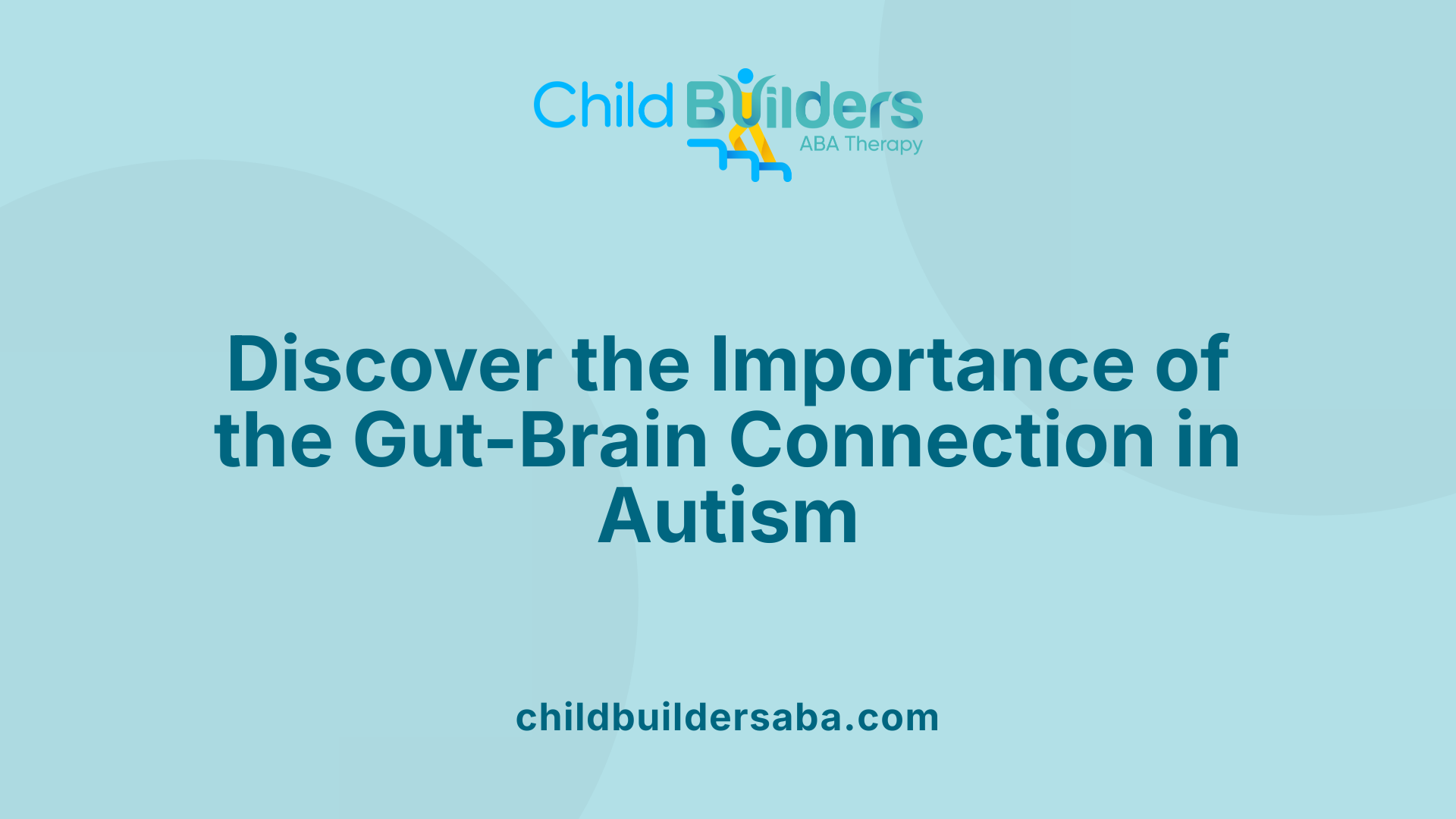
What is the gut-brain axis and how does it influence neurological development and behavior in autism?
The gut-brain axis is a complex system of communication that links your gastrointestinal system, the microorganisms living in the gut (microbiota), and the central nervous system, which includes the brain and spinal cord.
This bidirectional pathway allows the gut and brain to send signals to each other, influencing various functions such as mood, immune response, and development. In autism spectrum disorder (ASD), this axis often shows disruptions, with notable changes in gut microbiome composition and their metabolic products.
Research shows that microbial metabolites, like short-chain fatty acids (SCFAs), neurotransmitters such as serotonin and gamma-aminobutyric acid (GABA), and immune molecules, can all impact how the brain develops and functions. These substances can alter neural circuits, affect inflammation, and modify behavior.
For instance, an imbalance in gut bacteria may lead to an increase in harmful metabolites that promote neuroinflammation or disturb neurotransmitter levels. Such changes are linked to core ASD behaviors, including social difficulties, repetitive motions, and difficulties with communication.
Encouragingly, interventions like probiotics, special diets, and fecal microbiota transplants aim to restore gut microbial balance. Some studies have shown these may help reduce behavioral symptoms and improve gastrointestinal issues.
Overall, the gut-brain axis plays a critical role in neurodevelopment and behavior in autism. By understanding and targeting this pathway, scientists hope to develop new therapies that could greatly improve the quality of life for individuals with ASD.
Bridging the Gap in Autism and Gut Health
The burgeoning research into the gut-brain connection underscores the importance of considering gastrointestinal health in understanding and managing autism spectrum disorder. While the exact mechanisms and causal relationships continue to be elucidated, current findings support the potential of microbiome-targeted therapies, dietary modifications, and immune regulation as complementary approaches for improving the quality of life in individuals with ASD. Ongoing studies and future clinical trials hold promise for developing personalized interventions, early diagnostic biomarkers, and more effective treatments rooted in the intricacies of the microbiota–gut–brain axis. As our understanding deepens, a holistic approach that integrates gut health into neurodevelopmental care could transform therapeutic paradigms for autism.
References
- Gut-Brain Connection in Autism | Harvard Medical School
- Role of Gut Microbiome in Autism Spectrum Disorder and Its ...
- Nutrition and the Gut-Brain Connection - Autism Research Institute
- Gut-brain link may affect behavior in children with autism - USC Today
- The complex interplay between autism spectrum disorder and gut ...
- The Gut, Autism, and Mental Health
- Kids with autism show altered gut microbiome-brain interactions ...
- Paper Suggests Link Between Gut Biome and ADHD, Autism
- Role of gastrointestinal health in managing children with autism ...
- A robust microbiome signature for autism spectrum disorder across ...

























.jpg)











































































